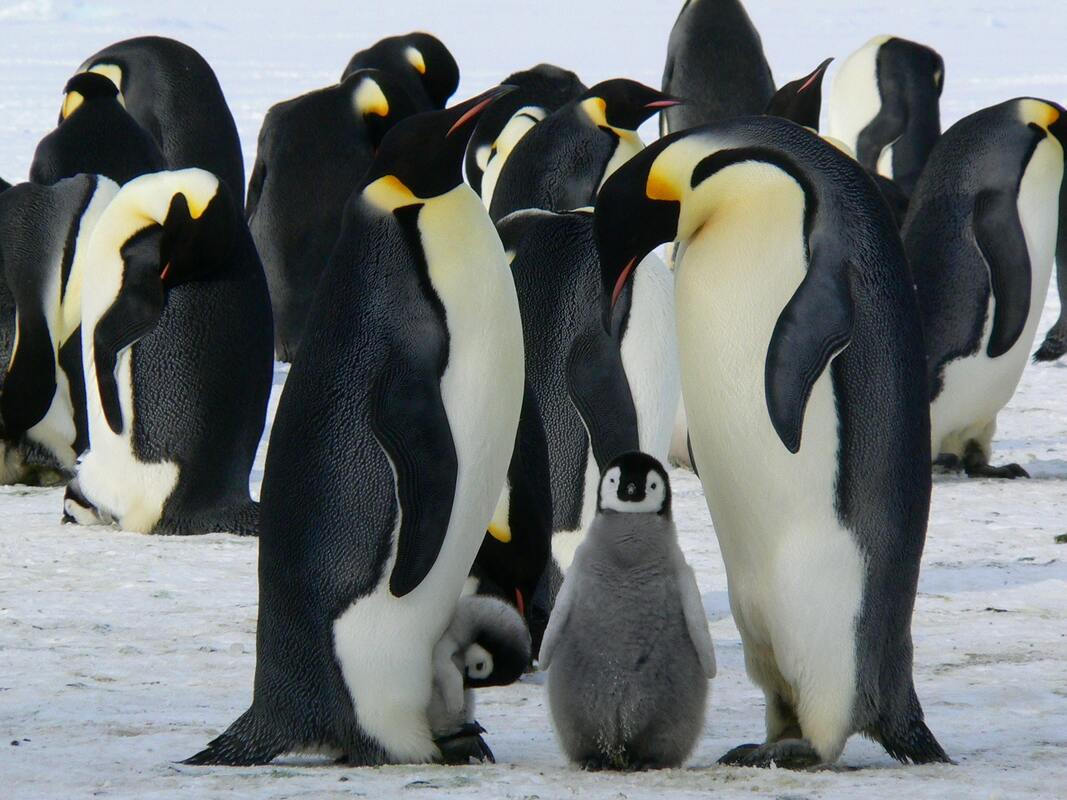Always we are learning from the world around us. From other people; books, movies and films; landscapes and waterways; and, of course, from other animals. Penguins, for example.
Documentary films such as March of the Penguins (see below) help us to learn from penguins even as most of us cannot see them in-person. And penguins are, after all, persons. In process theology a person is a series of persons, of experiencing “subjects." The subject you are today is not the subject you were yesterday; you are always in process. And so it is with penguins.
Like us, penguins are on a journey, a pilgrimage. Their pilgrimage is to survive with satisfaction relative to the situation at hand, in community with others, through mating and bonding, ritual and play. Our human pilgrimage is, of course, quite similar. Our shared pilgrimage is prompted by genetic impulses and environmental circumstance, and also by an inwardly felt lure to live life to its fullest.
This inner lure is one way that the Spirit of the universe, God, is within all of us, moment by moment. Penguins much included. God is inside each of us as our will to live with satisfaction. The Bible calls it the breath of life.
How, then, might we live? That is the question we humans ask in ways that penguins need not. Our aquatic, flightless friends seem to know what to do in ways that surpass our feeble powers of discernment. Perhaps we can learn from them. In their review of March of the Penguins, Frederic and Mary Ann Brussat offer us seven lessons from penguins. Call it practical theology, penguin style.
- Jay McDaniel, 3/10/2022


